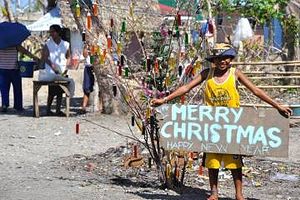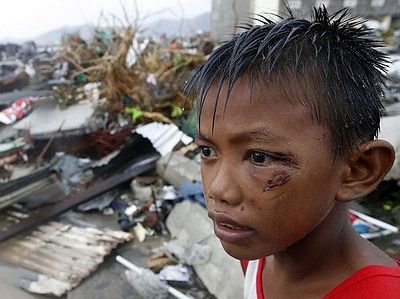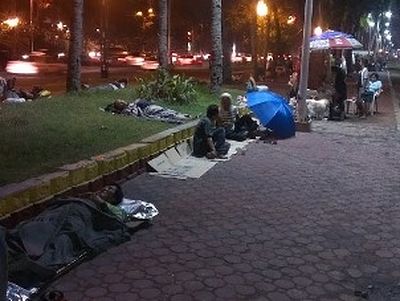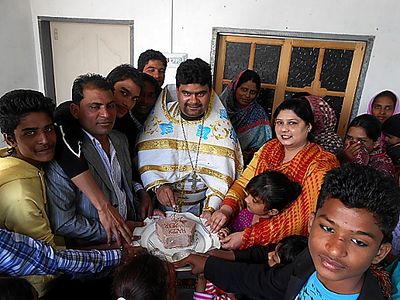Philippines, December 24, 2013

Nonetheless, she insists that she had a good reason to celebrate Christmas this year. Four days after Haiyan (named Yolanda in the Philippines) destroyed her hometown, she discovered her parents and all six of her siblings alive amid the wreckage. “It will be a very special Christmas after everything that happened,” says Antillon.
The Philippines is the third biggest Catholic country in the world (after Brazil and Mexico), and Christmas is not just a holiday but also a religious occasion. As Filipinos struggle to recover from Haiyan, however, a stripped-down and subdued Christmas celebration has taken hold in the hardest-hit areas. “You can never take Christmas out of the Filipino,” says Richard Gordon, chairman of the Philippine Red Cross.
“Normally at this time of month you hear children singing Christmas carols outside of the houses and asking for coins,” says Aaron Aspi, a relief worker for World Vision, but he says this year the carolers have gone silent. “I wake up to the sound of chain saws on the trees that have fallen.”
Housing remains a work in progress, and the cost of building supplies, like planks of wood, has strained household budgets to the breaking point. Few families in the disaster-struck areas can afford to spend money on extravagances such as decorations and gifts. But they can improvise.
They have, for example, hung homemade ornaments from saplings alongside the road, stringing plastic bags filled with dyed water to the branches. They have lashed bamboo stalks together in a cone-shaped semblance of a pine tree, with CDs decorating it. Each disc bears a handwritten message: “Merry Christmas everyone,” “A simple gift is a complete family,” “Everything happens for a reason.”
The typhoon also forged new congregations of worshippers. In the community of Palo, south of Tacloban, people took shelter from the storm at a convent run by the Missionaries of Charity. “We prayed all through the morning on that day,” says Sister Imelda. “Then they stayed for a week since they had nowhere to go.” Now the families have persuaded the nuns to arrange a Christmas celebration, so they can pray together once more, this time by choice. “On Christmas Day, we will celebrate Mass together with the children,” she says.
Monsignor Bernardo Bantin, rector of the nearby Cathedral parish, says the children’s plays normally scheduled around this time had to be scrapped. The masses in Bantin’s church will be held under tarpaulin this year, since both roof and dome are missing. “There are very few lanterns, even in church, and the power isn’t back,” Bantin says. “In a way it’s going to be a quite silent, drab Christmas.”
The atmosphere could be very special, though. Bantin says the hardships of the past month and a half have strengthened bonds in the community. “The first week, people didn’t know what to do, they just tried to stay safe while the rain kept pouring. Now, the joyful Filipino spirit is already back. In a way, the ordeal has brought people together.”



